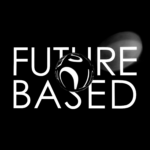In the webinar ‘The Pleasure of Friction’ Miriam Rasch poses the question how we can resist an increasingly ‘frictionless’ society, filled with smart devices, communicative automation, and ubiquitous surveillance. Moreover, is it possible to do so in a joyful way? If we want to change something in our dealings with technology, it will help if the alternatives have something pleasurable to offer. What can we learn from writers and philosophers from the past and present about maintaining a positive outlook on friction?
Philosophers that will be discussed:
1. Simone de Beauvoir put friction and failure at the heart of her ethics, with the added note that this gives not only excruciation but joy as well. (The Ethics of Ambiguity)
2. Timothy Morton writes about how to change our lives in the face of climate catastrophe , points to the necessity of pleasure for such a change to be successful. (Being Ecological)
3. Roland Barthes tells us something about the pleasure of complexity, which challenges the one who encounters it all the way up to a state of bliss. (The Pleasure of the Text)
4. With their concept of the undercommons, Stefano Harney and Fred Moten present a view of what a joyful gathering beyond the notion of frictionlessness could look like.
Miriam Rasch is a researcher at the Institute of Network Cultures (Amsterdam University of Applied Sciences) and lecturer in the AUAS minor in Philosophy. She studied Literary Theory and Philosophy. She’s also a freelance critic writing about literature and philosophy and an essayist with an interest in the intersection of technology, philosophy, and literature. Her book on life in post-digital times, Zwemmen in de oceaan: Berichten uit een postdigitale wereld, was published in 2017 by De Bezige Bij. In 2018 Shadowbook: Writing Through the Digital 2014-2018 was released, which is an (open access) collection of experimental essays. In May 2020, Frictie: Ethiek in tijden van dataïsme, her book on data ethics and the possibilities of de-automation came out. Miriam Rasch is also a member of the Ethical Board of AUAS and of the Editorial Boards of De Nieuwe Garde, The Low Countries, and Eurozine.
Why a lecture on the topic ‘the pleasure of friction’ right now?
The ideal of frictionless design for an ultimately frictionless society leads to profoundly ethical questions. If technology decides for us what we think, want, and should do, the basis of ethical deliberation disappears. However, it is also understandable that these same technologies are cherished, as they allow us to stay in touch with loved ones, discover information and insights we would never have encountered otherwise, and just plainly make us Laugh Out Loud. And isn’t there rather too much friction online (and in the camera-observed streets), with increasing polarisation and a public debate that has grown into a perpetual loudness war? All the more reason to take a closer look at what friction could mean in a positive and pleasurable sense, and to re-establish the link between ethics, freedom and friction.
Practical: When? The 24th of September 20:00 – 21:00 UTC Amsterdam. You will receive a ZOOM link before the start of the event.
The purpose of these webinars:
Future Based’s ‘Sixty minutes back to the Future’ series is a new series in which we reflect on the bottlenecks and challenges of today’s society, and contemporary issues that have already been addressed by numerous philosophers, artists and scientists: What can we learn about the future by looking at history?
The structure of the lectures is as follows: In sixty minutes, an artist, designer, researcher, or scientist talks about her/his field of work and what theories and thinkers have influenced their work. We will then reflect on how these theories, ways of thinking, and researches are relevant for understanding the state of today’s society, what we can learn from them about the ‘now,’ and why it is relevant to involve our past in our speculations about the future.
After 60 minutes, we will leave you on your own, with a head full of questions and the eagerness to go and conduct research yourselves. Luckily, you will receive access to a document with reading suggestions and relevant texts at the end of the lecture.
A note: In these times of challenges of all sorts, we need to lend each other a helping hand. That’s why Future Based organises these webinars on a non-profit basis. This means that ticket sales go directly to the artist, designer or scientist. (Future Based is not subsidized by any means.)
Banner: Dana Dijkgraaf / Text editor: Kees Muller
